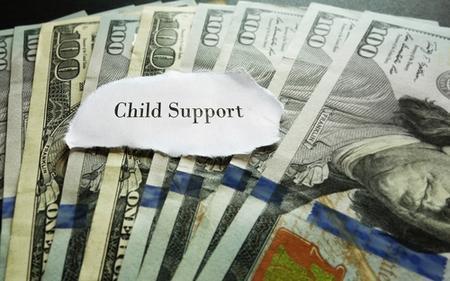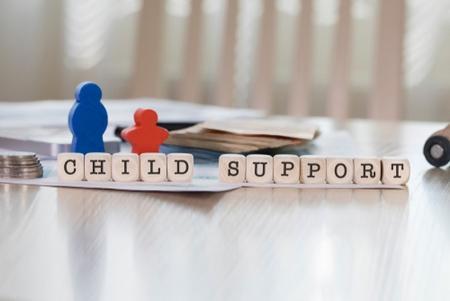630-462-9500
After Hour New Client Telephone Number 630-690-6077
1776 S. Naperville Road, Building B, Suite 202,
Wheaton, IL 60189
Recent Blog Posts
How to Stop Your Ex from Stalking You Electronically During Divorce
 When a couple chooses to get divorced, the best-case scenario involves them parting ways amicably while still maintaining respect for each other. Unfortunately, this is not always the case. Some ex-partners can be dangerous, and it may seem difficult to remove them from one's life even when the divorce is over. An ex-spouse may commit multiple different types of harassment, including electronic stalking. This can be a subtle but invasive method of stalking someone, and many people do not even know their privacy has been compromised until it is too late. If you are concerned that your ex-partner is stalking you, here are some tips to help protect your privacy and your safety.
When a couple chooses to get divorced, the best-case scenario involves them parting ways amicably while still maintaining respect for each other. Unfortunately, this is not always the case. Some ex-partners can be dangerous, and it may seem difficult to remove them from one's life even when the divorce is over. An ex-spouse may commit multiple different types of harassment, including electronic stalking. This can be a subtle but invasive method of stalking someone, and many people do not even know their privacy has been compromised until it is too late. If you are concerned that your ex-partner is stalking you, here are some tips to help protect your privacy and your safety.
Change Your Passwords
If you and your ex-partner shared accounts for email, social media, or other apps during your marriage, it is important to change the usernames and passwords of those accounts immediately. You should also take steps to remove your ex from any bank accounts or credit cards the two of you shared. Your ex-partner could still be using online apps or financial records to track your communications, your whereabouts, and your spending habits. Make sure you use a password that is not obvious to your ex-partner. Avoid the use of easy-to-guess references like your first pet or your middle name. Consider a password generator that provides a completely random sequence of unguessable characters.
How Divorce Can Help You Escape an Abusive Relationship

Divorce can be a difficult process, but if you are in an abusive relationship, it may be a necessary one. Unfortunately, abusive relationships often involve manipulation, and sometimes the person who is being abused does not realize they are a victim. Those who are experiencing difficulties in their relationship should be sure to recognize the signs of abuse and learn about their options for escaping an abusive situation.
What Defines an Abusive Relationship?
Not all abusive relationships are physically violent. These relationships typically involve one partner taking control or power over the other. This control can be expressed through physical violence, verbal abuse, and/or manipulative behavior. Mind games, threats, gaslighting, coercion, and intimidation are all common traits of manipulative behavior. Domestic violence can result in physical harm to a spouse or their children, but abuse can cause a great deal of emotional and psychological harm as well.
How Is Marital Property Divided Under Illinois' Divorce Laws?
 Marriage is like a knot, and that knot can be very tricky to untie if you are getting a divorce. One of the most difficult parts of divorce can be the division of property. Many states use “community property” laws, which say that any assets obtained during a marriage are subject to equal division in the case of a divorce. However, Illinois is not a community property state, and instead, it uses a principle known as “equitable distribution.” This states that assets will be fairly and equitably divided between spouses in just proportions rather than being split 50/50.
Marriage is like a knot, and that knot can be very tricky to untie if you are getting a divorce. One of the most difficult parts of divorce can be the division of property. Many states use “community property” laws, which say that any assets obtained during a marriage are subject to equal division in the case of a divorce. However, Illinois is not a community property state, and instead, it uses a principle known as “equitable distribution.” This states that assets will be fairly and equitably divided between spouses in just proportions rather than being split 50/50.
Types of Property
There are two types of property that a married couple may own: marital property and separate property. Marital property is defined as all assets and debts obtained by either spouse during a marriage. This includes not just tangible property but also intangible assets. Examples may include vehicles, furniture, clothing, jewelry, bank accounts, trusts, real estate property, and business interests--as long as they were obtained during the marriage. Liabilities such as credit card debts or home and auto loans are also considered marital property.
Are Prenuptial Agreements More Common for Millennials?

Prenuptial agreements tend to get a bad reputation. A person may feel that a request to sign a prenup implies that one partner makes the majority of the money, and signing a prenuptial agreement may make it seem like a marriage is expected to end in divorce. However, a prenup does not necessarily have negative implications, and it can provide a number of benefits for a married couple. As people in the Millennial generation get older and begin to get married, they are agreeing to more prenups than previous generations. According to a study published by the American Academy of Matrimonial Lawyers, 62% of attorneys surveyed have seen an increase in requests for prenuptial agreements in recent years, and 51% of attorneys said that the numbers of Millennials requesting prenups has increased. Why is this the case? There are a number of possible reasons:
A Closing Wage Gap
Why Do Child Support Calculations Differ From State to State?

Choosing to divorce is not a decision many people take lightly, especially if a couple has children. One of the primary concerns for divorcing parents is the ability to meet their children's needs, and in many cases, one parent will pay child support to the other following the divorce. However, determining the correct amount of child support can often be a complex matter, and the methods of calculating child support differ from state to state.
One recent study examined child support calculations in different states by considering a hypothetical couple: a father who makes $55,000 a year and a mother who makes $45,000 a year with two children who would primarily live with the mother following the couple's divorce. This example case was used to determine how child support would be calculated for this couple throughout the country.
The study found that the amount of child support payments varies wildly in different states, and it often does not correlate with the cost of living in a state. For example, New Jersey ranked 47th in the amount of child support payments that would be awarded in the example case, yet it is one of the most expensive states to live in. Massachusetts is the state with the highest amount of child support payments. Illinois is on the higher end of the scale for the amount of child support that would be awarded in the hypothetical case; according to the guidelines provided in Illinois law, the amount of support awarded would be around $870 per month.
Which Careers Have the Highest Divorce Rates?

Maintaining a healthy work-life balance can be difficult. Sometimes, a career can take up so much of a person's like that there is no room for a healthy relationship. If a partner feels like they come in second to their spouse's career, the likelihood that their marriage will end in divorce increases. A recent study which looked at divorce rates in different careers may shed some light on why people with certain types of jobs may be more likely to get divorced. If you or spouse are in a career with a high divorce rate, this does not necessarily mean that your marriage is doomed, but if either of you has not made an extra effort to carve out time for each other, this can be an indication that your relationship may be in trouble.
Workplaces With Temptations
Studies have found that a couple may be more likely to divorce if one spouse is in a workplace with attractive co-workers. Career choices on this list include bartenders, personal trainers, or dancers and choreographers. In these occupations, people are encouraged to wear attractive and tight-fitting clothing. According to a study published in the Journal of Police and Criminal Psychology with data from the 2000 Census, dancers and choreographers have a divorce rate of 43.1%, and bartenders have a divorce rate of 38.4%. Temptation in the workplace may lead to infidelity, which is a common cause of divorce. In fact, recent evidence shows that when people commit adultery, they are more likely to do so with a co-worker.
How Is Custody of Family Pets Handled During an Illinois Divorce?
 When getting a divorce, one of the major issues that must be resolved is how to divide marital assets. Many material possessions can easily be divided, or they may be sold, allowing divorcing spouses to split the proceeds, but some things have the same sentimental value to both parties. Family pets are often among the most hotly disputed “assets.” In fact, since many pets are treated like members of the family, disputes over their ownership can be similar to custody battles over children. When addressing these issues, divorcing couples should understand how the law applies to them.
When getting a divorce, one of the major issues that must be resolved is how to divide marital assets. Many material possessions can easily be divided, or they may be sold, allowing divorcing spouses to split the proceeds, but some things have the same sentimental value to both parties. Family pets are often among the most hotly disputed “assets.” In fact, since many pets are treated like members of the family, disputes over their ownership can be similar to custody battles over children. When addressing these issues, divorcing couples should understand how the law applies to them.
Recent Changes to Illinois Law
In many states, pets are considered to be a part of marital property, subject to division between divorcing spouses. While this is also true in Illinois, on January 1, 2018, a new law went into effect that may affect pet custody cases. Under this law, a judge should consider a pet's well-being before awarding ownership of the pet to either spouse. In some cases, this may make disputes over pet ownership similar to disputes over child custody, and couples may ask the judge in their case to make a decision about who should be granted “custody” of the pet.
How to Make Sure Your Child Support Payments Are Calculated Correctly

If you are getting divorced and have children, your relationship with your ex is not going to be over as soon as the final divorce settlement is signed. If you earn a higher income than your ex-spouse, or if you will have the minority of the parenting time following divorce, you may be required to pay child support that will ensure that your children's ongoing needs will be met. However, both parents have an obligation to provide financial support for their children, so it is important to make sure all relevant factors are considered when calculating the amount of child support payments. This will ensure that children's needs will be met and that the parents will both be able to support themselves. Some factors to take note of include:
Net Income for Both Parents
A basic support obligation will be determined that is based on the net income earned by both parents, and this amount is divided between the parents according to their percentage of the total household income. However, when determining the amount of each parent's net income, it is important to understand what adjustments may be made. For example, if a parent is already paying child support for children from a previous relationship, the amount of this support will be deducted from their gross income.
How to Tell Your Partner You Want a Divorce
 The choice to end your marriage and get a divorce is a decision that affects your finances, your relationships with family and friends, and most importantly, yourself. It is a decision most people spend a long time contemplating before they decide to announce that they want to separate from their partner. However, when the time does come to discuss divorce with your partner, you will want to make sure you approach this conversation the right way. Here are a few tips to make this discussion go as smoothly as possible:
The choice to end your marriage and get a divorce is a decision that affects your finances, your relationships with family and friends, and most importantly, yourself. It is a decision most people spend a long time contemplating before they decide to announce that they want to separate from their partner. However, when the time does come to discuss divorce with your partner, you will want to make sure you approach this conversation the right way. Here are a few tips to make this discussion go as smoothly as possible:
Timing Is Important
When you know your relationship is beyond reconciliation, you can make the mature decision to end the relationship and detach yourself from your partner. You will likely want to complete the divorce process as smoothly as possible, ending your marriage without hurting your spouse. When you are ready to let your partner know that you would like to get divorced, choose a time when your partner is capable of receiving such emotional news. If they are stressed at work or are going through personal family problems, try to wait until those difficulties are over. While there is no perfect time to announce a break-up, some times are better than others, and you should consider your partner's feelings as you determine the ideal time to make the announcement.
Tips for Handling Divorce-Related Issues While at Work

If you are getting a divorce, it is likely to have an impact on all aspects of your life, including many that are unrelated to your relationship with your spouse. Getting divorced while maintaining a full-time job can be difficult, since there are a wide variety of legal and practical concerns that will need to be addressed. There will be important phone calls to answer, paperwork to look over, and emotions to manage, and doing so while putting on a professional front at work can be challenging. Here are some tips to help balance your work and the concerns related to your divorce:
Make a Schedule
Addressing the legal requirements, paperwork, and financial concerns of your divorce can be overwhelming. Going through the divorce process can feel like taking on a second job. However, it is important to keep your divorce proceedings and career separate to avoid jeopardizing your job. Getting divorced costs money, and on top of legal fees, you may need to pay alimony and/or child support. The last thing you want is to suffer career setbacks that may affect your income.




















